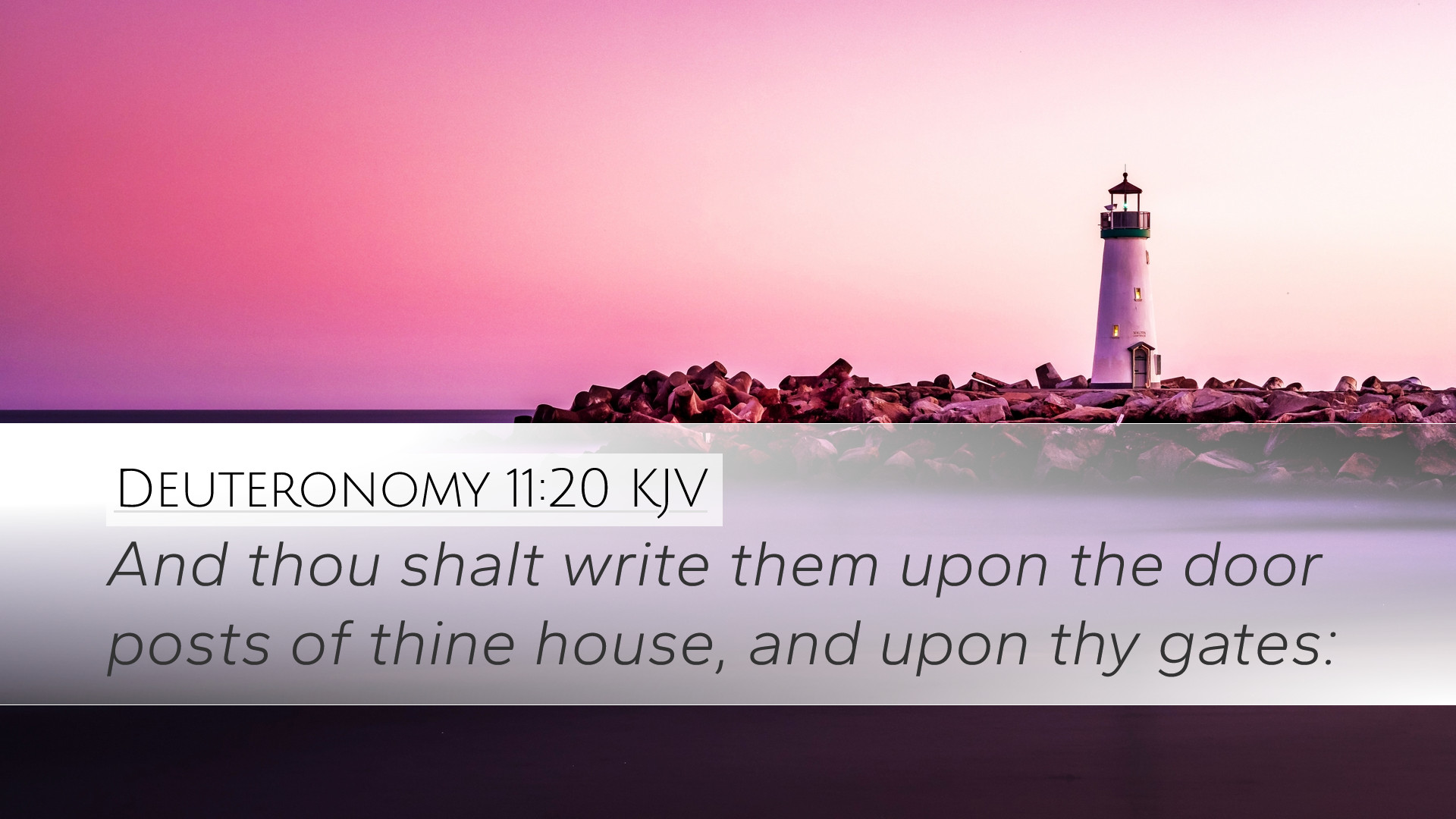Commentary on Deuteronomy 11:20
Verse: "And thou shalt write them upon the door posts of thine house, and upon thy gates."
Introduction
Deuteronomy 11:20 encompasses a significant directive from God to the Israelites regarding the importance of His commandments in their daily lives. This verse is a part of Moses' exhortation to the people of Israel, emphasizing the need to internalize and externalize God's laws. The act of writing God's commands upon doorposts and gates serves as a symbol of constant remembrance and observance.
Historical Context
The Book of Deuteronomy is often seen as a series of speeches delivered by Moses to the Israelites on the plains of Moab, just before they enter the Promised Land. It provides a retrospective view of their journey and urges a covenantal relationship with God. The mention of door posts and gates is particularly meaningful, as homes and communities were central to Israelite life.
Theological Significance
This verse encapsulates the integration of faith into daily life. To write God's laws on doorposts signifies a public as well as personal commitment to God’s commandments. It identifies the home as a primary domain where spiritual life is cultivated and emphasizes the transmission of faith within the family unit.
Commentary Insights
Matthew Henry's Commentary
Matthew Henry emphasizes that the doorposts of the house symbolize the boundaries of the home, indicating that the Word of God is to govern all activities within and around the dwelling. He notes that this practice serves as a reminder to children and guests alike of the importance of obedience to God’s laws. Henry points out that these inscriptions are not merely ornamental but serve as a constant reminder of divine obligations.
Albert Barnes' Commentary
Albert Barnes elaborates on the practicality of this commandment. He asserts that the Israelites were to make an effort to ensure that the principles of divine law were ever visible in their surroundings. By placing these commandments on their gates, they were openly declaring their allegiance to God and setting a precedent for future generations. Barnes particularly emphasizes the importance of visible reminders in one's environment to reinforce spiritual commitments.
Adam Clarke's Commentary
Adam Clarke highlights the cultural practice of marking doorways and gates in ancient times to signify various forms of allegiance or protection. In Clarke’s view, the directive serves both as a practical measure and as a spiritual exhortation. He notes the importance of inscribing the commandments in such public places to ensure that the entire community is aware of and adheres to the covenant agreement with God.
Practical Applications
The theological principles derived from Deuteronomy 11:20 can be effectively applied in contemporary faith communities. Here are some significant applications:
- Family Discipleship: Encourage families to create environments where God's Word is central, such as inscribing scripture or key teachings in visible places within the home.
- Community Faithfulness: Inspire congregations to publicly display their commitment to God through various means, be it signs, public statements, or acts of service that reflect biblical principles.
- Daily Reminders: Foster practices where individuals are reminded of scripture throughout their day—using technology or physical notes that echo faith commitments.
Conclusion
Deuteronomy 11:20 stands as a potent testament to the need for believers to engage actively with God's commandments in both private and public spheres. The admonition to inscribe these words upon doorposts and gates serves not just a ritualistic purpose but an educational one, embedding divine truth in the fabric of daily life. By examining these rich commentaries, we are reminded of our responsibility to make the Word of God an inseparable part of our existence.


